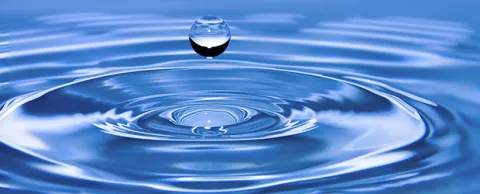
Around the world, there has been very little relief from drought, according to the latest analysis from the National Integrated Drought Information System. With no relief and a bleak forecast, more cities are looking for innovative solutions to their water woes.
In the U.S., the entire West Coast is struggling with droughts of varying degrees, with most of California and parts of Nevada in exceptional drought, the most severe stage. A number of regions, including the Arabian Peninsula and parts of Australia, India and China, are draining three-quarters or more of the water from their rivers.
In 10 years, we may be looking back at this as the good times. By 2025, nearly two-thirds of the world’s population will live in areas where water is scarce.
Council Associate Partner Veolia says it’s important that cities start preparing now, and it highlighted three projects that are helping.
Wastewater recycling fuels industry
Like some other areas, water supplies are severely constrained in Durban, South Africa, prompting Veolia to work with leaders there to find ways to make wastewater useful. The challenge was that one of the biggest users of water there is a company that makes fine paper –- a process that requires water that’s almost clean enough to drink.
More than 20 years ago, Durban found ways to recycle treated wastewater, but wasn't sure how to scale the process to meet the needs of industry and the requirements of citizens. A long-term concession contract eliminated some of the risk, and Veolia installed a very specialized treatment process to provide water the paper mill could use.
Today, the city recycles 98% of its wastewater, adding an oil refinery as its second largest customer. Lower tariffs make recycled wastewater attractive to industry and Veolia's work ensures that water meets high quality standards. In addition to virtually eliminating wastewater that's dumped, the project has freed up potable drinking water for about 300,000 people.
Network of pipes distributes recycled water
Queensland, Australia’s second-largest state, looked to recycling wastewater after a severe drought in 2007 left its reservoirs nearly dry. About 2.5 million people relied on those reservoirs for their drinking water.
The Western Corridor Project involved creating a huge network of underground pipes to link wastewater processing facilities to key industries that could make use of it. The network, finished in 2008, features more than 200 kilometers of pipes and remains one of the world’s largest recycled wastewater projects.
The network provides purified water that helps run two power plants. It also has capacity to serve other industrial and agricultural customers.
Modernizing water infrastructure
Aging infrastructure also poses a sizable risk in regions where water supplies are tight. Leaky pipes can cause significant amounts of potable water to simply be lost; obsolete treatment facilities can stand in the way of cities recycling all of the wastewater they can.
Thames Water, the largest water and wastewater service company in the UK, is starting work on a massive overhaul of its water infrastructure through a partnership with Veolia and others. Water pipes, sewers and treatment facilities are all part of the improvement plans for the five-year project that could be extended, depending on the results.
More stories …
4 steps to jumpstarting a smart water initiative in your city
How to plug your water supply’s (money) leaks
Do San Francisco’s smart meters help curb water use?



